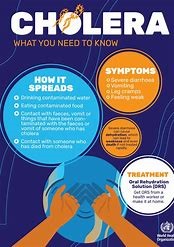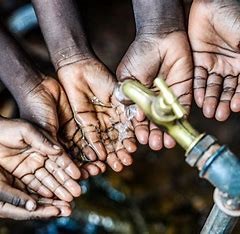The Lagos State government has indicated that it received further support from the WHO in managing cholera in Kirikiri prison.
In the latest assessment of the situation with cholera in Lagos State, Commissioner for Health Prof. Akin Abayomi emphasized the importance of successfully implementing highly significant and sensitive medical and environmental control measures.
“We were able to provide, Kirikiri medium prison, with intravenous fluids, infection prevention and other health consumables”.
“Besides, WHO has provided 10,000 doses of pharmaceuticals that enable prisons support health facilities on prevention measures for roughly about 3,200 inmates if needed We have also intervened and addressed immediate water and sanitation concerns that required corrections In addition, there are continuous investigations in other State’s correctional facilities,” said the Commissioner.
The Lagos State Government has also stated that it has observed a decrease in the number of daily recorded cholera cases compared to what was experienced two weeks ago. However, it acknowledges that there is still active and persistent community transmission of the virus, with new cases being admitted to various hospitals across the state.

In an update on the cholera outbreak in Lagos State following the ONE HEALTH inter-governmental agency strategic meeting held last weekend, the Commissioner of Health, Professor Akin Abayomi, stated that no deaths from cholera have been recorded in the last 72 hours. He further emphasized that the government is intensively working to contain transmission.
Abayomi also mentioned that there has been a decrease in new daily cases and no new deaths have been reported, indicating that the interventions are effective. He noted that social compliance with health measures and timely presentation of symptoms for treatment are being observed.
Speaking on the origin of the first outbreak two weeks ago, he disclosed that it was associated with consuming unregulated street drinks and contaminated water sources carrying the virus.
He explained that numerous samples from popular street beverages, obtained by undercover environmental officers from the Environmental Protection Agency (LASEPA) and the Ministry of Health in the affected areas, confirmed the presence of Vibrio cholerae bacteria, the causative agent of cholera.
“All of the containers had no NAFDAC accreditation numbers, indicating they are small cottage backyard informal production units. Identifying the precise location of manufacture has proven difficult and the directorate of environmental health is planning to seal any such unregulated manufacture and make arrests of anybody involved with the manufacture or distribution of beverages without NAFDAC numbers,” Abayomi said.

He said that the state government, through its interagency One-Health approach, has embarked on environmental health countermeasures with the Lagos Water Corporation and agencies of sanitation and waste management like LAWMA and LASWAMO. These measures include extensive cleaning of residents and surrounding structures, testing and clearing of boreholes, treatment of potable water in affected local governments, and increasing penalties for local brewers of such drinks.
The commissioner encouraged communities to continue practicing preventive measures related to the coronavirus disease. He also called for community participation in using safe water, food, and drinks, maintaining proper hygiene, promptly starting oral rehydration solution (ORS), and seeking medical check-ups in case of developing diarrhea and vomiting.
He also said that any treatment given to suspected cholera patient in any government hospital is provided free of charge.
The commissioner leading the task force reassured the public that there was no need to panic, emphasizing that with concerted effort and synergy with all stakeholders, the state is taking all necessary measures to combat and contain the cholera outbreak, aiming to protect residents’ health and ensure they have access to clean water.
Sources




